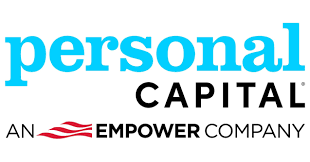HSAs: The Best Kept Financial Hack
- March 26, 2025
- 6 min read
-
131 reads
As a financial planner, I’ve consistently observed a common trend: Many of my clients and potential clients are not fully leveraging the advantages of Health Savings Accounts (HSAs). This oversight represents a substantial missed opportunity that’s all too common yet easily rectifiable.
An HSA can be so tax-efficient that it challenges the adage “nothing is certain except death and taxes.” When used correctly for qualified medical expenses, the funds in the account effectively bypass taxes entirely.
This unique advantage defies the typical certainty of taxation, as famously noted by Benjamin Franklin, and opens up a pathway for smarter, tax-efficient financial planning.
HSAs: More Than Just a Savings Account
The Health Savings Account (HSA) often flies under the radar, likely due to its somewhat misleading name. It’s much more than a simple savings account; it’s a versatile financial tool tied to high-deductible health plans, designed for contributing pre-tax dollars towards medical expenses.
However, there’s much more to HSAs than meets the eye. In the following sections, I’ll guide you on how to effectively utilize your HSA, transforming it into what could be termed a “health investment account” or a “health retirement account,” leveraging its full potential beyond just savings.
The HSA Basics
Eligibility Criteria
- High-Deductible Health Plan (HDHP): Must be enrolled in an HDHP.
- No Other Health Coverage: Cannot have other health coverage except what is permitted under HSA rules.
- Not Enrolled in Medicare: Cannot be enrolled in Medicare.
- Not a Dependent: Cannot be claimed as a dependent on someone else’s tax return
Contribution Limits
- Individual Plan: Maximum of $4,150.
- Family Plan: Maximum of $8,300.
- Additional Contribution: People over 55 can contribute an extra $1,000.
- Contribution Deadline: Contributions can be made up until the tax filing deadline for the year.
Remember, contributions can always be lower than the maximum, and some employers might even chip in as part of your compensation package.
The Secret Supercharged HSA Strategy
Here’s where things get exciting. Instead of making the mistake I see most people making, and using your HSA for medical expenses as they come up, consider it as another pillar of your long term retirement plan.
Despite the name, HSA funds can be invested!
By investing your HSA funds and paying current medical expenses out of pocket, you give your money the chance to grow exponentially year after year. And the best part, all of this growth over the years may never be taxed.
This approach creates a “bucket” of never taxed money to pay for what is often the largest single expense throughout retirement: medical expenses.
Expert Insight
Medicare Part B premiums, which are essentially mandatory for anyone collecting Social Security, are considered qualified expenses that can be paid from an HSA.
The Triple Tax Advantage
The HSA offers an unbeatable triple tax benefit:
- Pre-tax Contributions: Lowering your taxable income.
- Tax-Free Growth: No taxes on dividends or capital gains within the HSA.
- Tax-Free Withdrawals: For qualified medical expenses.
Investment Strategy and Management
Effectively managing and investing the funds in your Health Savings Account (HSA) is a key component to maximizing its benefits. When selecting an HSA provider, it’s important to choose one that offers a broad range of investment options with low fees.
Fidelity, for instance, is known for its diverse investment choices and fee-free structure, making it a popular choice among HSA holders. You can also check out Lively, HealthEquity, or Bank of America.
Investing your HSA funds effectively involves crafting a diversified, low-cost portfolio:
- Embrace Diversification: Aim for a mix of asset classes, like stocks and bonds, and diversify within these classes across various sectors and regions.
- Opt for Low-Cost Options: Include index funds or ETFs that track market indexes for broad exposure and lower fees.
- Align Stock/Bond Mix with Goals: Your stock and bond allocation should match your investment timeline and risk comfort. Opt for more stocks if your horizon is longer and you can tolerate volatility; lean towards bonds if your timeline is shorter or you prefer stability.
- Regular Portfolio Rebalancing: Adjust your investment mix periodically to stay aligned with your target allocation, helping manage risk and potentially boosting long-term returns.
- Adjust as Circumstances Change: As you near the time of using your HSA funds, gradually shift towards lower-risk investments like bonds to safeguard your capital.
The Fine Print: Warnings and Tips
Health Savings Accounts (HSAs) are an incredible tool in your financial arsenal, but like anything, they come with nuances that require careful consideration:
- State-Specific Implications: Not all states treat HSAs equally. For instance, in states like New Jersey and California, HSAs might be less advantageous due to specific state tax rules. It’s crucial to understand the tax implications in your state to fully assess the benefits of an HSA.
- Investment Strategy Considerations: HSAs can be powerful investment vehicles, but they demand a commitment to a long-term strategy. Market volatility can pose a risk, especially if you’re likely to need funds in the short term. It’s essential to align your investment choices with your risk tolerance and time horizon.
- Balancing Risk with Accessibility: If you’re concerned about covering unexpected, significant medical expenses, it’s wise to keep a portion of your HSA funds in cash or cash equivalents. A practical approach could be to maintain an amount equivalent to your maximum out-of-pocket expense limit in a more liquid form. This strategy reduces the risk of having to sell investments at a loss during market downturns.
- Adapting to Changing Financial Needs: Your HSA management strategy should adapt to your financial situation. Regular evaluations of your healthcare needs, financial goals, and market conditions can help you determine the ideal balance between investments and liquid funds in your HSA.
Final Thoughts
Health Savings Accounts (HSAs) are an underutilized financial resource that offers tax advantages to enhance long-term financial health, especially as part of a retirement strategy.
By contributing to an HSA, investing wisely, and understanding the nuances, you can create a significant safety net for future medical expenses and build a tax-efficient reserve.
Remember, the key to maximizing the benefits of an HSA lies in a well-informed, strategic approach tailored to your financial situation and goals. Embrace this opportunity to make your HSA work harder for you, and turn it into a powerful component of your financial future.




